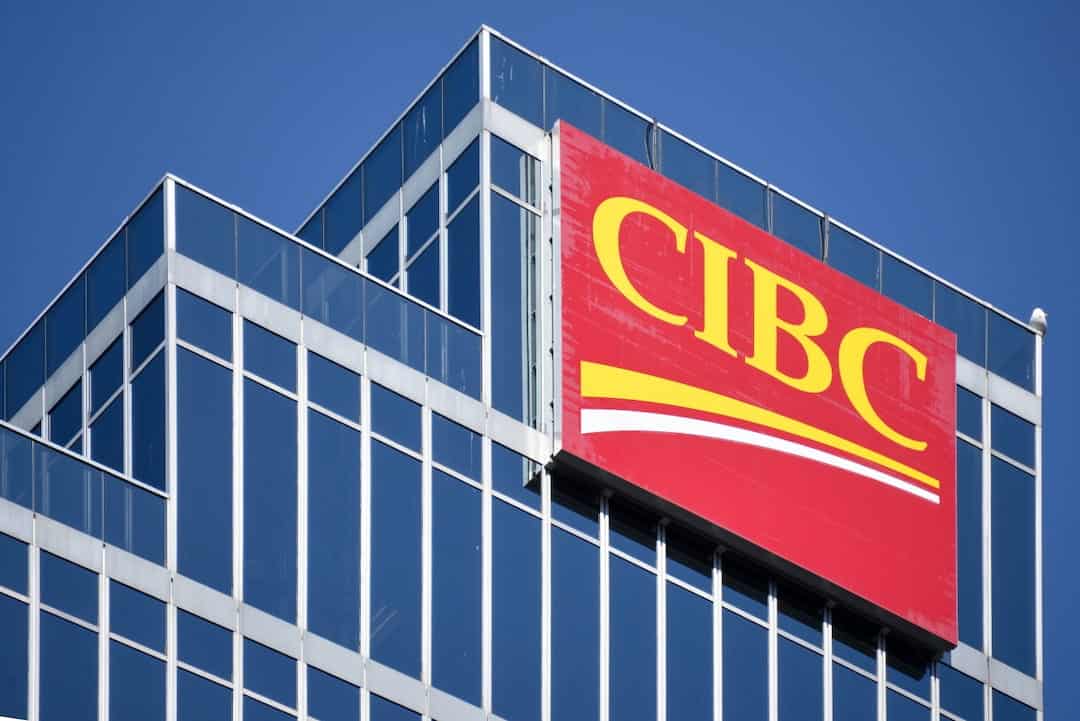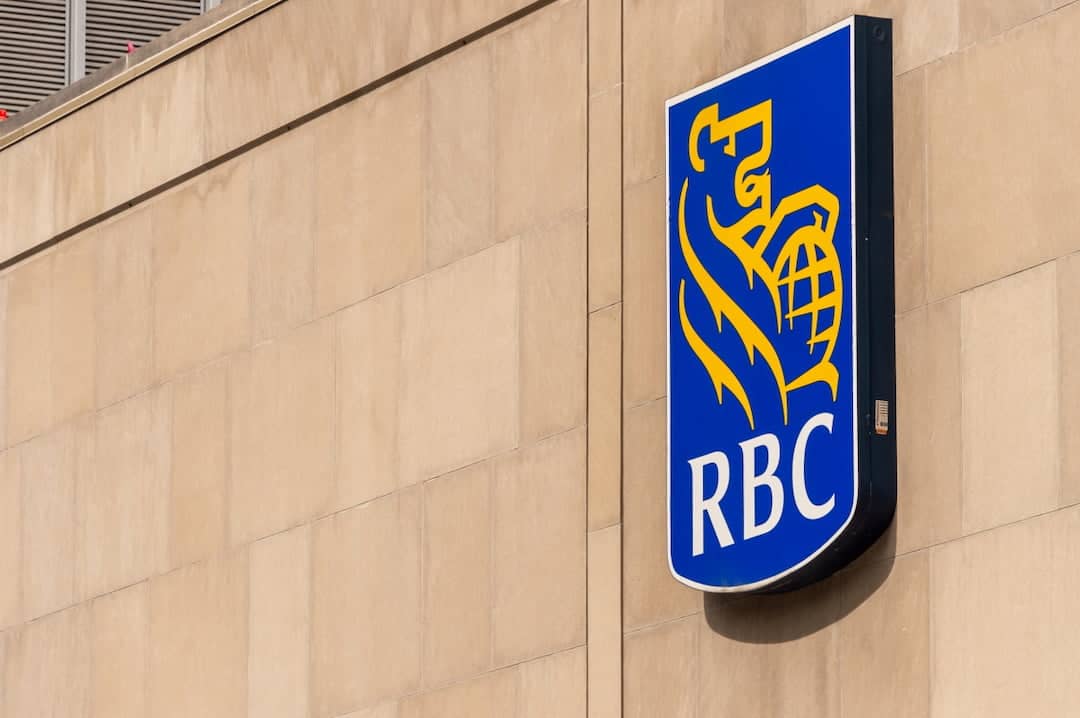Banking in Canada is easier and more financially rewarding than ever. Banking customers now have innumerable account options. Many accounts provide you with rewards, discounts and even money-back options. If you are thinking of opening a bank account it is easier than ever to view customer reviews online and access service and product reviews.
However, with more than 80 different banks in Canada, including 29 Canadian banks and multiple online bank options, choosing the best bank for you can very difficult.
Reading the reviews for every bank would require a huge amount of time and dedication. Instead, most banking clients opt to choose one of the Canadian ‘Big Five’ – the largest banks that dominate the Canadian banking industry:
- Canada Imperial Bank of Commerce (CIBC)
- Royal Bank of Canada (RBC)
- BMO
- Scotia Bank
- TD Bank
Today, we are going to examine two of the most popular banks – CIBC and RBC. Both of these banks have great customer reviews and excellent banking options. We do recommend that you read our TD vs. RBC comparison, as well as our full RBC reviews. Let’s take a look at how RBC stacks against CIBC (see also our thorough CIBC review).
RBC vs CIBC: A Comparison of the Banks
Both Canada Imperial Bank of Commerce (CIBC) and Royal Bank of Canada (RBC) are both members of the ‘Big Five’. The big five are the five largest banks in Canada and the most popular options for those looking for banking or financial services.
Both banks provide a variety of different services, bank accounts and interest rates. This can make it difficult to decide which option is best for you, even if you have looked at the reviews.
Both RBC and CIBC (check out what this name stands for) offer a variety of personal and large, medium or small business bank accounts. This includes chequing accounts and high-interest savings accounts. They also offer credit cards, mortgages, loans, lines of credit, investment services and insurance.
Below is a breakdown of RBC vs CIBC:
| Feature | RBC | CIBC |
| Number of branches | 1210 | 1100 |
| Number of ATMs | 4200+ | 3011 |
| Clients | 17 million | 10 million |
| Total Assets | $1.62 trillion | $769.9 billion |
| Online banking | Yes | Yes |
| Account Management | Yes | Yes |
| Cheque Deposits | Yes | Yes |
| Free Interac e- Transfers | Yes | No |
| Investment Accounts | TFSA, RRSP, RESP, RDSP, RRIF | RRSP, RIF, LIF, RESP, TFSA, RDSP |
| Investment Products | Mutual Funds, GICs, ETFs, Stocks and Bonds | Mutual Funds, GICs, ETFs, Stocks/Bonds |
Below, we will look at some of RBC and CIBC’s most popular products and financial services.
Chequing Accounts Compared: CIBC vs RBC
Choosing the best chequing account can be difficult. Not only do both CIBC and RBC offer competitive deals, but they each have multiple accounts to choose from. We have broken down each chequing account offered by RBC and CIBC and examined the advantages of each one.
RBC chequing accounts that are currently available include:
RBC Day to Day Banking
This is the low-fee banking option perfect for those who do not make many monthly transactions. There is a $4 monthly fee for this account. Account-holders will receive 12 free debits every month, with each additional debit charged at $1.25. There is a $0 fee for seniors and RDSP beneficiaries. Overdraft protection is available for $4 per month.
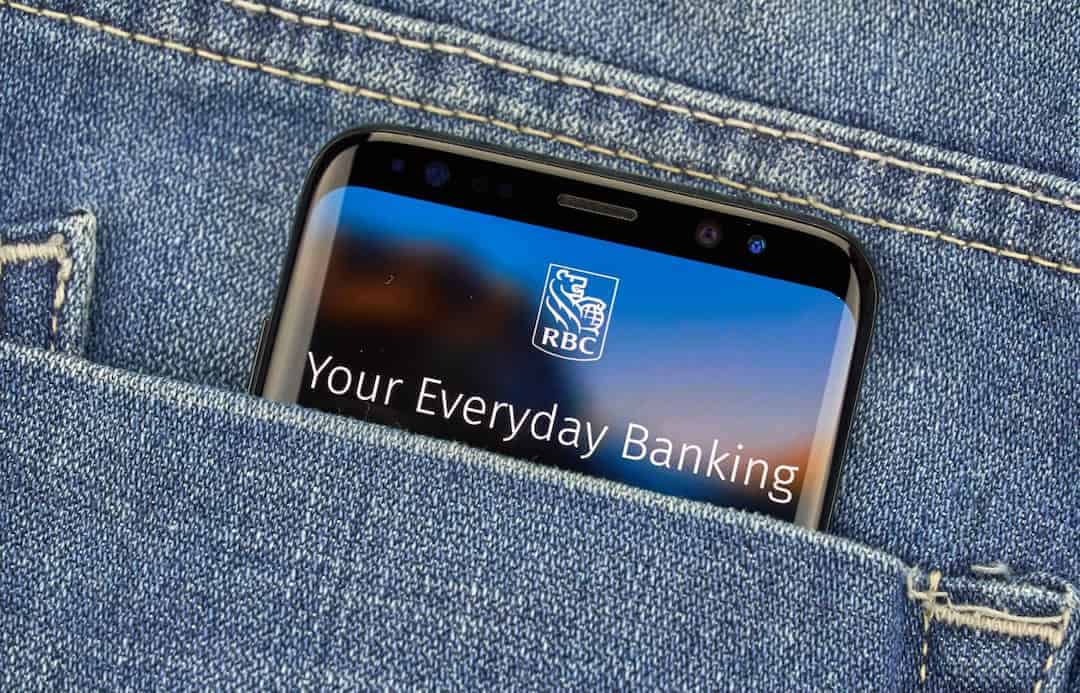
RBC Advantage Banking
This bank account offers unlimited transactions for a low fee of only $11.95. You will receive free withdrawals from any ATM in Canada. RBC offers a welcome bonus of up to $300 if you switch to this account from another bank. Newcomers also receive an added bonus of $0 fees for the first year. Full-time students also do not have to pay a monthly fee. You will receive 50 free cheques per year.
RBC Signature No Limit Banking
For a monthly fee of $15.95, receive unlimited debits and five free cross-border debits per month. You will also get free overdraft protection, unlimited cheques and six free bank drafts. Account-holders can also receive a rebate of up to $39 on the annual fee of an eligible RBC credit card. Overdraft protection is included.
RBC VIP Banking
The VIP account has all of RBC’s most valuable features for a $30 monthly fee. You will receive unlimited debit transactions worldwide and no fees to use ATMs anywhere in the world. You will have unlimited cross-border debits and 12 free bank drafts. You will also receive up to a $60 a year discount on a safety deposit box and up to a $120 rebate on the annual fee of an eligible RBC credit card.
All RBC chequing accounts come with some other excellent perks, including:
- No minimum balance requirement.
- Unlimited Interac e-Transfers.
- Unlimited transfers to other RBC accounts.
- If you are not completely satisfied within the first four months, RBC offers a refund of up to three months of account fees.
- You can save money on your monthly fees if you are a senior citizen.
- Access to RBC Vantage. This allows you to earn rewards on everyday purchases and save $0.03 per litre on gas at Petro. You can also save on the monthly fees if you have other RBC products. You will also have access to NOMI – RBC’s specialized service that tracks your spending and helps you plan a personalized budget.
- Option to add account management.
- In branch help and support and 24/7 customer services.
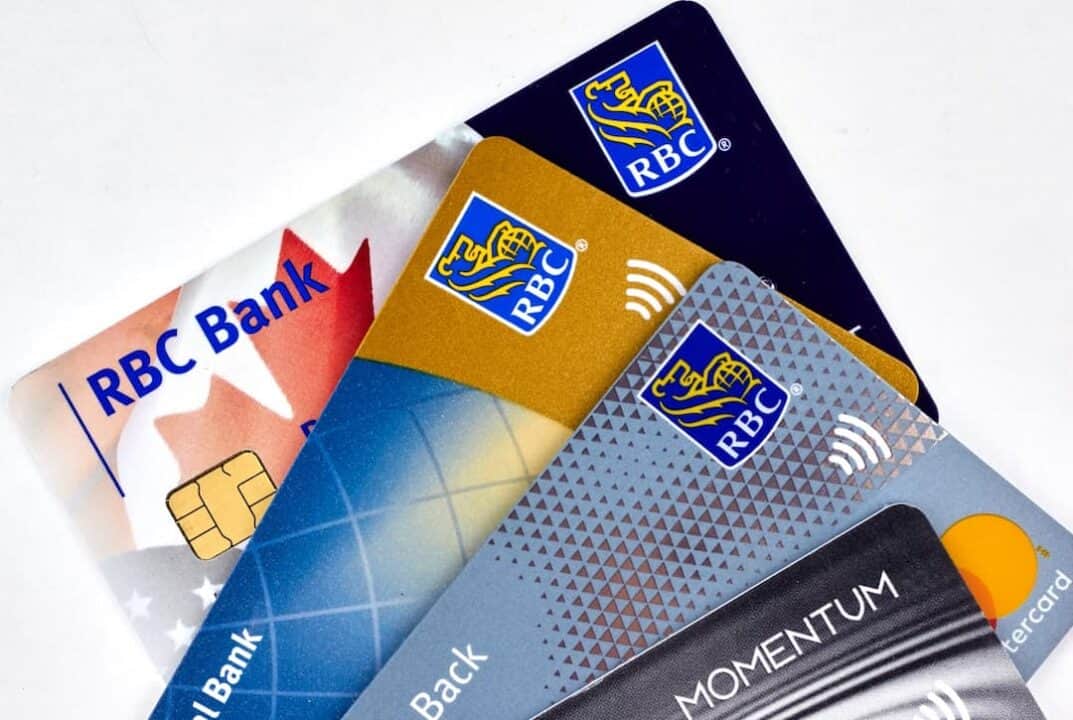
CIBC currently offers three different chequing accounts.
Everyday® Chequing Account
The Everyday Account has a monthly fee of $3.90. You receive 12 free transactions per month, with $1.25 charged for each additional transaction. Each Interac e-Transfer is $1.50, although you do not pay to receive an Interac e-Transfer. Non-CIBC ATM withdrawals also have a $2 service charge. Overdraft protection is available for an additional $4 per month.
Smart™ Account
The Smart Account has a monthly fee ranging from $4.95-$14.95. The monthly fee is based on the number of transactions you make. For example, for up to 12 transactions, the fee is $4.95. For between 12 and 20 transactions, you will be charged an additional $1.25 per transaction. For $14.95, you will receive unlimited transactions. Maintain a daily minimum balance of $3,000 and make a recurring direct deposit or two pre-authorized payments and the monthly fee will be waived. Non-CIBC ATM withdrawals are charged at $2. You will receive free Interac e -Transfers, although these will be counted as a transaction.
Smart™ Plus Account
For a monthly fee of $29.95, receive unlimited transactions and unlimited ATM withdrawals internationally. You can also get a premium CIBC credit card with annual fee rebates. The daily balance to waive the monthly fees is $6,000, or $100,000 in savings and investments. Overdraft protection is included.
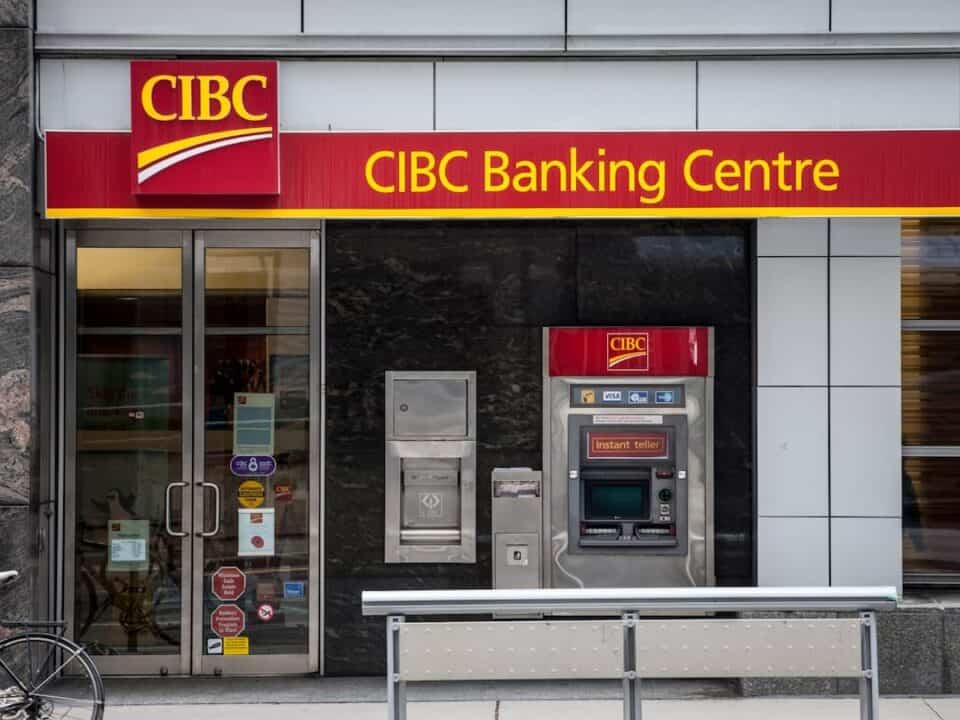
All CIBC chequing accounts come with:
- Access to Journie Reward system where you could save up to $0.10 per litre on gas.
- Text alerts when your balance drops below a certain amount to help you avoid NSF fees.
- Access to CIBC Insights service. This gives you tailored tips based on your spending and your average account balance.
- CIBC is currently offering a welcome bonus of $300 cash-back and no monthly fees for up to 12 months. You simply need to open your first Smart Account or Smart Account Plus. Smart Plus customers will also receive Plus all-in-one banking with over $500 in value.
- Option to add account management.
Savings Accounts Compared: RBC vs CIBC
RBC offers four different savings accounts:
- RBC High-Interest Savings Account
- NOMI Find & Save
- RBC Day to Day Savings Account
- RBC U.S. High-Interest Savings Account
All RBC savings account have no monthly fees and no minimum balance requirements. The interest rates are set at 0.05% for most of the accounts, although there is a 1.5% introductory interest rate for the first 90 days.
CIBC also offers four savings accounts:
- eAdvantage® High-Interest Savings Accounts
- US$ Personal Accounts
- TFSA Tax Advantage Savings Account®
- RRSP Daily Interest Savings Account
CIBC savings accounts also have no monthly fees, like RBC accounts. The interest rates are 0.05% and they offer a 1.25% introductory interest rate.

Credit Cards Compared: RBC vs CIBC
RBC offers four different credit cards. All of the cards have an interest rate of 19.99% for purchases and 22.99% for cash advances.
- RBC Avion Visa Infinite
This credit card is perfect for those who frequently travel. The annual fee is $120. You will receive 35,000 welcome points and 1 RBC point for every $1 you spend, plus an extra 25% on eligible travel purchases.
- WestJet RBC World Elite Mastercard
This card has an annual fee of $119. If you choose this card, you will receive 350 welcome WestJet dollars and a free round trip companion voucher. You will also receive 2 WestJet dollars on selected purchases in the first three months, 1.5% back in WestJet dollars on everyday purchases and 2% back in WestJet dollars on WestJet flights or vacation packages.
- RBC Rewards+ Visa
This card has no annual fee. You will earn Earn 1 RBC point for every $1 spent on gas, grocery and drug store purchases and 1 point for every $2 spent on all other purchases.
- RBC Cash Back Preferred World Elite Mastercard
The yearly fee is $99. Earn up to 1.5% cashback on your spending.
CIBC offers three different credit cards. Interest rates are currently set at 19.99% for purchases and 22.99% for cash (21.99% in Quebec).

- CIBC Aventura® Visa Infinite*
This has an annual fee of $99. The welcome offer includes up to 35,000 Aventura Points and a rebate of the first year’s fee. You will also receive 1.5 points for every $1 spent at eligible gas stations, grocery stores and drug stores and 1 point for all other purchases.
- CIBC Aeroplan® Visa Infinite*
This has an annual fee of $139. The welcome offer includes up to 20,000 Aeroplan points and one buddy pass for a flight in North America. Earn 1.5 points for every $1 you spend on gas, groceries and with Air Canada directly and 1 point for all other purchases.
- CIBC Dividend® Visa Infinite*
This premium card has an annual fee is $120. The welcome offer includes a rebate of the first year’s fee and up to 10% cashback for the first four months. You will also receive comprehensive coverage and 4% cashback on gas and groceries, and up to 2% on everything else.
It is difficult to name a clear winner in the battle of the credit cards, as both banks offer some fantastic options. CIBC currently boats the best welcome offers, and this could be a deciding factor for many people. However, RBC has a fantastic rewards system that offers money-back and points for everyday purchases.
CIBC or RBC for Newcomers?
The RBC Newcomer Advantage Program is available to international students and permanent residents. If you open an RBC No Limit Banking account or an RBC VIP Banking account, you will:
- Pay no monthly fees for 12 months.
- Receive $100 if you open an eligible bank account.
- Two free international money transfers every month for a year.
- A free small safety deposit box for two years.
- Up to 6,000 RBC Rewards Points with a qualifying credit card.
The CIBC Welcome to Canada Banking Package offers special discounts if you received permanent residence status in the last five years. Newcomers will receive:
- No monthly fees for 12 months.
- Up to a $60 refund on a safety deposit box.
- No security deposit, income or credit history required if you choose a CIBC credit card.
- Save $99 on the first 12 months’ annual fees with a CIBC Dividend Platinum® Visa* Card.
- $300 with a CIBC Smart™ Account for Newcomers
- Send money abroad with no transfer fee with CIBC Global Money Transfer™ service.
While both banks offer excellent perks and incentives to newcomers, CIBC offers more benefits to customers who take out multiple products with them. For those with no credit history, offering credit cards with no credit history requirements could be a huge advantage.
The Bottom Line
Both RBC and CIBC offer a variety of account options for new and existing customers. Both banks offer great reward programs to their customers, and this could be a major factor for consumers. RBC seems to offer more perks and bonuses for chequing account customers, with no fees and no minimum balance requirement.
On the other hand, CIBC’s credit card options have an excellent welcome offer, and may even be available to those with no credit history. When deciding which bank is best for you, consider which products you are most interested in. It is easy to see why both banks are considered part of the big five. Let us know which of these super banks you choose!
